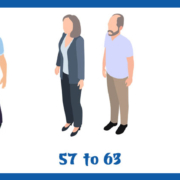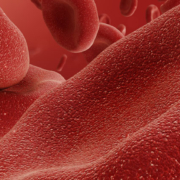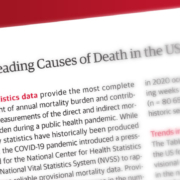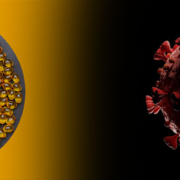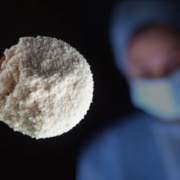Dr. Chet’s Health Memos
 If it’s in the health news today, I’ll be writing about it as soon as I read the research, both old and new. With my email Health Memos, you’ll know more about making lifestyle choices that will help you get and keep good health. These free, concise updates on health are emailed to subscribers twice a week. Subscribe today and get a free MP3, in English or Spanish, of Dr. Chet’s Top Ten Tips—Small Changes for a Healthier Life.
If it’s in the health news today, I’ll be writing about it as soon as I read the research, both old and new. With my email Health Memos, you’ll know more about making lifestyle choices that will help you get and keep good health. These free, concise updates on health are emailed to subscribers twice a week. Subscribe today and get a free MP3, in English or Spanish, of Dr. Chet’s Top Ten Tips—Small Changes for a Healthier Life.
Omega-3s and A-Fib: More Analysis Required
I hope that you took the time to review the paper on atrial fibrillation as well as the research letter on omega-3s and atrial fibrillation. If you haven’t, especially the primer on A-fib, please do it. It’s a serious condition that requires attention if you have it; in most cases, fixing it is surprisingly simple. […]
Research Update on Omega-3s and A-Fib
A recent research letter to The European Heart Journal caught my attention. This was a continuing meta-analysis of data linking the use of omega-3 fatty acids to atrial fibrillation. The result of the original analysis in 2020 and the additional studies that were examined in the current meta-analysis led to the conclusion that there’s an […]
Aging with a Vengeance and Your Proteome
This year’s Super Bowl Webinar focused on aging with a vengeance—becoming the best version of yourself, no matter your age. The study we just reviewed on the proteome suggests that the people were healthier who were biochemically younger than their actual age. Here are the actions I believe can help at the three critical phases […]
Proteome: Predicting Your Age
Have you ever taken a test or questionnaire that predicts your health age? What they’re really predicting is your longevity based on lifestyle factors and where your health stands today. What if you could be more precise in actually calculating your health age? That’s what researchers did based on the results of the proteome study […]
The Proteome: A Cross-Sectional Study
Every study begins with a question. A single question often leads to more questions, which leads to questions about whether the outcome can be measured, and on and on. In this case, the question was related to changes in the blood proteome over a lifetime: Is the proteome stable? Is it a series of continuous […]
What Is the Proteome?
In the week we took off, I spent my time researching a couple of fascinating studies. We all have different ideas of what’s fun, don’t we? For me, getting to research topics in depth is a refreshing opportunity to learn something new. I’m going to share part of what I learned in the next several […]
Statistics and Lies
The past year has been full of opinions about the COVID-19 virus, the treatments that people claim work, and even the number of deaths from the virus. I mean, people were full of it. And still are. The story I heard most often from a variety of people was that people died from other causes, […]
2020 Mortality Statistics
The statistics on the causes of death in the U.S. always take a year or more to collect because every state and the District of Columbia forwards the death certificates with the cause of death to the National Center for Health Statistics Vital Statistics System for review and compilation. You can see why it would […]
New Research on Vitamin D and COVID-19
The research confirming the benefit of adequate levels of higher vitamin D (25-hydroxyvitamin D) blood levels keeps growing. In this Memo, I’m going to cover two of the most recent studies, both observational studies; the researchers were able to obtain vitamin D levels from medical records after subjects were admitted with COVID-19 infections. Study One: […]
Should You Take Essential Amino Acids Before Surgery?
Tuesday’s study left us with a question: what could explain essential amino acids (EAAs) increasing, or at least preventing, muscle loss after total knee replacement surgery? Fortunately, another study examined those factors by obtaining muscle biopsies and blood before and after surgery. Researchers recruited 41 patients who were having total knee replacement. After randomly assigning […]



